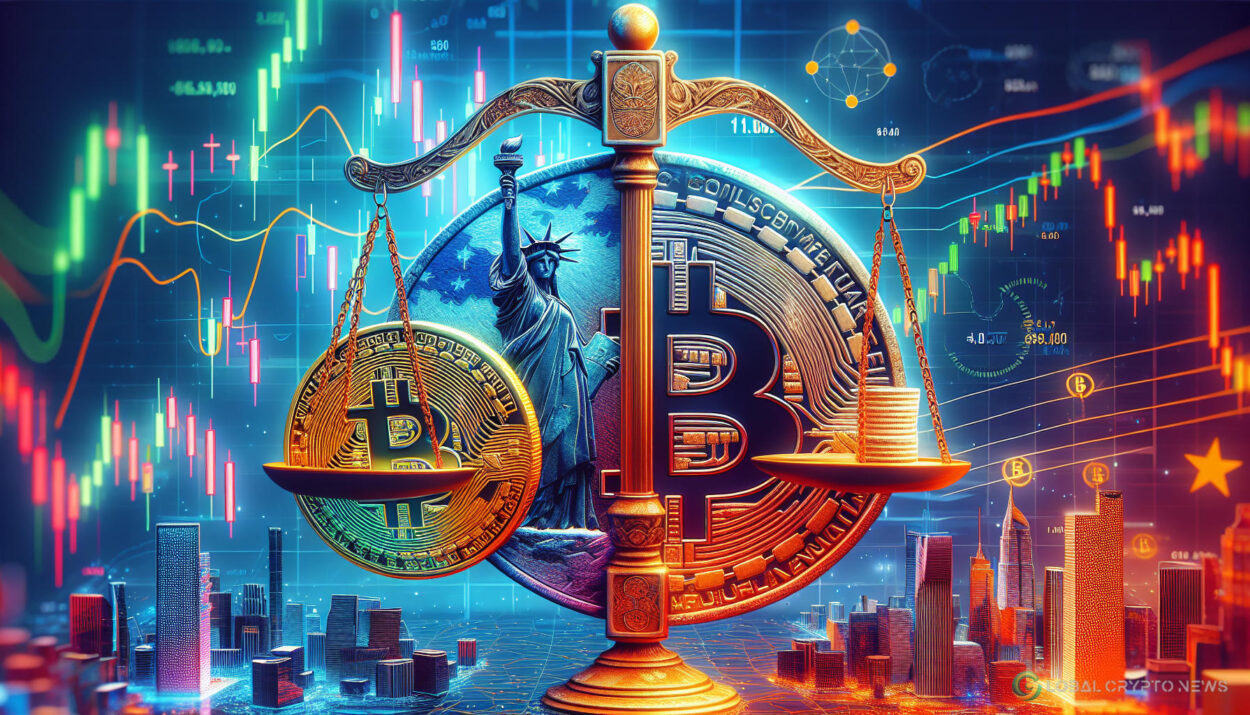“`html
At Token2049, industry experts delved into the implications of the ongoing U.S.-China trade war and explored how Bitcoin could become a critical asset in the global economic landscape. The discussion highlighted how nations might compete to leverage cryptocurrencies like Bitcoin to maintain or enhance their economic power.
The Impact of the U.S.-China Trade War
On April 30, Zoltan Pozsar, founder and CEO of Ex Uno Plures, shared his insights on the trade war between the United States and China. As both nations impose tariffs to gain an edge in global commerce, Pozsar explained how this economic conflict is placing China in a challenging position reminiscent of the U.S. during the Great Depression.
China’s economy heavily relies on export revenues to service its mounting debt. However, tariffs imposed by the U.S. are targeting China’s vulnerabilities, restricting its export capabilities. Pozsar emphasized that these tariffs are likely to hurt China more than Western consumers, as higher prices could prompt consumers to buy fewer goods rather than absorb the cost increases.
China’s Limited Options
China’s ability to address this pressure is constrained by its political and economic framework. Measures such as stimulating domestic consumption conflict with the ideological principles of the Communist Party, making it difficult for China to manage its economic crisis effectively.
Interestingly, Pozsar noted a shift in strategies between the two nations. The U.S. has started to focus on stimulus-driven funding for industrial projects—a model traditionally associated with China. Meanwhile, China is experimenting with monetary easing strategies that resemble Western approaches. This strategic shift is reshaping global trade dynamics.
The Role of Bitcoin in Global Economics
As global trade strategies realign, cryptocurrencies, particularly Bitcoin, are gaining attention as potential tools for economic resilience. Pozsar highlighted that Bitcoin’s decentralized nature and limited supply make it a compelling asset in this evolving economic landscape.
Bitcoin as a Strategic Asset
Dan Morehead, founder and managing partner at Pantera Capital, emphasized the importance of Bitcoin as a reserve asset for nations. He pointed out that the U.S. already holds approximately 1% of the global Bitcoin supply. According to Morehead, it would be a rational move for the U.S. to continue building its Bitcoin reserves, similar to how it has traditionally held gold.
“The emergence of a strategic Bitcoin gap is inevitable, as nations compete to establish their own Bitcoin reserves,” said Morehead.
This competition could extend to countries that are either aligned with or feeling threatened by the U.S.-led financial system. Even nations like China, which maintain an anti-crypto stance, might consider adopting Bitcoin reserves if it provides a strategic advantage over the U.S.
Global Shifts in Bitcoin Adoption
Recent reports indicate that nations such as China and Russia are beginning to use Bitcoin for select energy transactions, signaling a shift away from reliance on the U.S. dollar-dominated financial system. This move underscores Bitcoin’s growing significance as a tool for navigating geopolitical and economic challenges.
Key Takeaways for Investors
For investors interested in cryptocurrencies, these developments highlight the increasing relevance of Bitcoin in global economics. Here are some key considerations:
- Monitor geopolitical trends: Changes in global trade strategies and economic policies could impact Bitcoin’s adoption and value.
- Consider Bitcoin’s scarcity: As nations compete for Bitcoin reserves, its limited supply could drive up demand and prices.
- Stay informed: Understanding how governments and institutions are integrating Bitcoin into their strategies can provide valuable insights for investment decisions.
As the world grapples with shifting power dynamics, Bitcoin continues to solidify its role as a strategic asset. Whether for individual investors or nations, the cryptocurrency presents opportunities that are both timely and transformative in the context of global finance.
“`






















